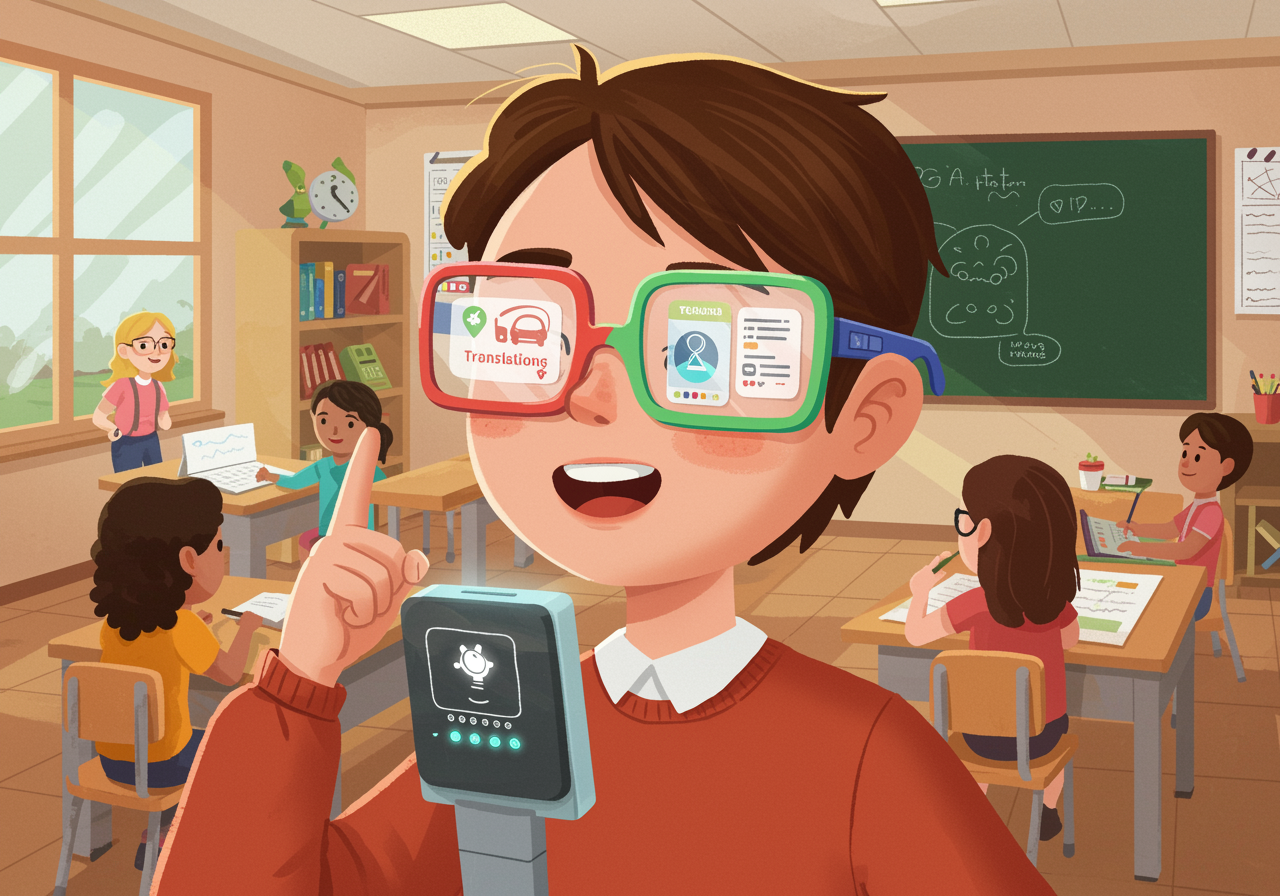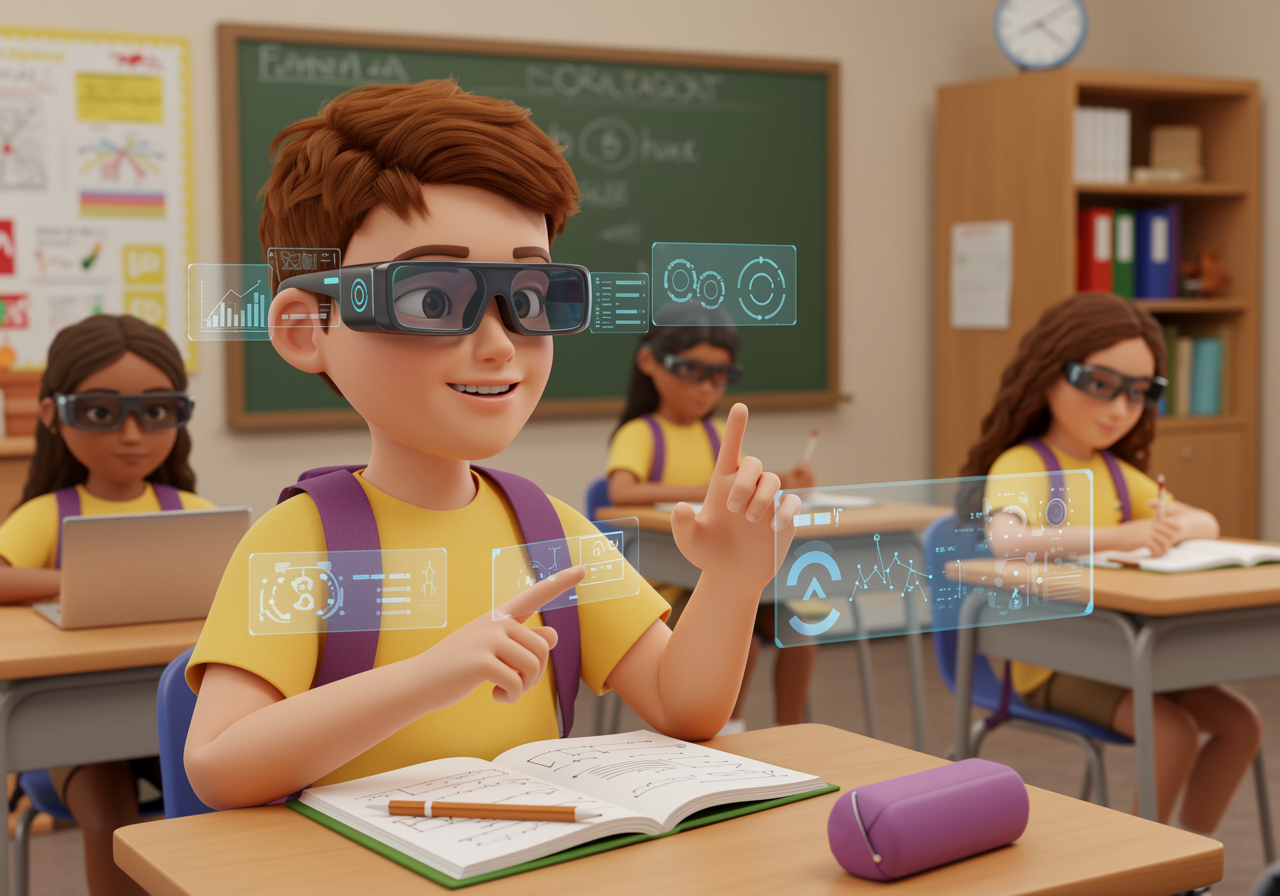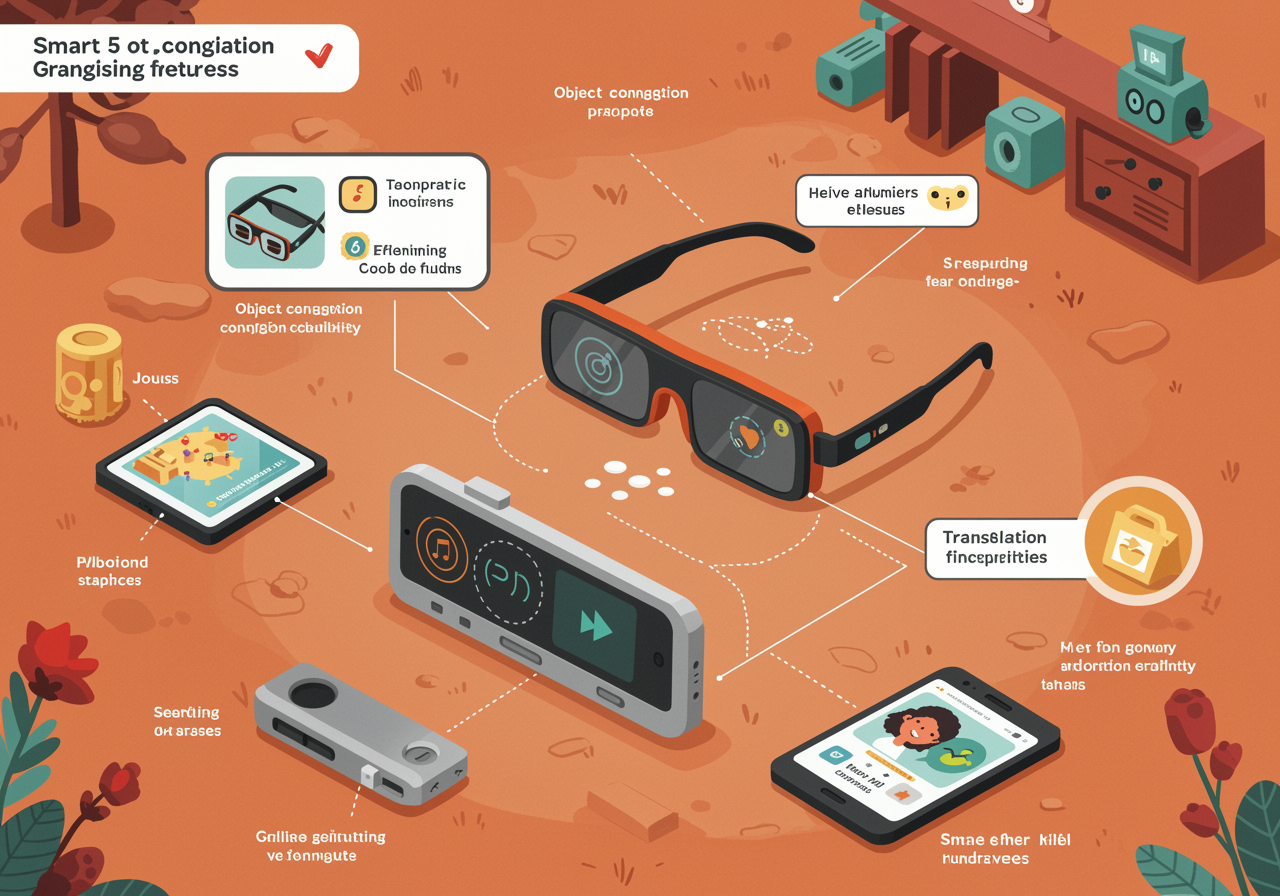Welcome to Camera World: When Everyone’s Got Eyes Everywhere

Exploring what happens when smart glasses and cameras become as common as smartphones
Dive into the fascinating world where everyone could have smart glasses and cameras, and discover how this technology might change the way we live, learn, and connect.
Overview
Imagine if everyone wore smart glasses that could record video, take photos, and share instantly – just like having a smartphone camera on your face! This isn't science fiction anymore. Companies are already building these devices, and they could become as common as phones within your lifetime. Understanding this technology now helps families think through both the amazing possibilities and the important questions about privacy, safety, and how we treat each other when cameras are everywhere.

Understand in 30 Seconds
Get up to speed quickly
- Smart Glasses = Tiny Computers on Your Face: Think of smart glasses like wearing a smartphone that can record, take photos, and connect to the internet, but hands-free and always ready to capture moments.
- The Good: Superpowers for Learning and Safety: Imagine getting instant translations when traveling, recording important moments without missing them, or helping people with disabilities navigate the world more easily.
- The Challenge: Privacy Gets Complicated: When everyone has cameras, people might feel like they're always being watched, and we'd need new rules about when recording is okay and when it's not.
- Social Changes: How We Act Might Shift: People might behave differently knowing they could be recorded anytime, which could make us more careful about our actions or more self-conscious about being ourselves.
Real Life Scenario
Situations you can relate to
Picture Maya walking into school wearing her new smart glasses. As she sits in math class, she quietly asks her glasses to help explain a confusing problem, and the answer appears on her lenses. During lunch, she records a funny moment with friends – but then realizes she forgot to ask permission first. After school, while walking home, her glasses automatically call for help when she witnesses a car accident, providing instant location data to emergency services. But later that evening, Maya feels weird knowing that other kids might have recorded her having an awkward moment in the hallway. Should there be 'no recording' zones at school? What if someone shares a video of her without asking? How do we balance the helpful parts with respecting everyone's privacy?

Role Play
Spark a conversation with “what if” scenarios
What if you could instantly translate any language you heard through your smart glasses?
- Role play: Take turns being tourists in a foreign country, with one person wearing 'magic glasses' that can translate everything, and explore how this would change travel and communication.
What if your smart glasses could identify every person you looked at and show their social media profiles?
- Role play: Role-play meeting new people at a party where one person has 'super recognition glasses' – discuss how this might feel awkward or helpful.
What if schools required 'recording-free' hours where all cameras had to be turned off?
- Role play: Debate the pros and cons as school administrators trying to create fair camera policies, considering both safety benefits and privacy needs.
FAQs
Frequently asked questions people want to know
Wouldn't people just record everything and share embarrassing moments?
This is a real concern! Just like with phones now, we'd need strong rules about consent and respect. Many proposed smart glasses have privacy indicators that light up when recording.
Could smart glasses help people who are blind or have other disabilities?
Absolutely! These devices could describe surroundings, read text aloud, identify objects and people, and provide navigation help – like having a helpful assistant always available.
Would wearing cameras all the time make crime go down?
Possibly! When people know they might be recorded, they often behave better. But it's complex – we'd also need to balance safety benefits with everyone's right to privacy.
Examples in the Wild
See how this works day to day
- Meta's Ray-Ban smart glasses already let people take photos and videos hands-free, though they have privacy lights to show when recording (Meta (2023))
- Google's prototype AR glasses can provide real-time language translation overlaid on what you're seeing (Google I/O Conference (2022))
- Apple's Vision Pro headset demonstrates how computers can blend with real-world vision, though it's currently too bulky for everyday wear (Apple (2023))
- Snapchat's Spectacles have been testing camera-equipped glasses for social media sharing since 2016 (Snap Inc. (2016-2023))
In Summary
What you should know before you start
- Smart glasses with cameras could become as common as smartphones, offering amazing benefits for learning, accessibility, and safety
- Privacy concerns are real – we'd need new social rules and laws about when recording is appropriate and how to respect others
- The technology could help reduce crime and assist people with disabilities, but might also make some people feel constantly watched
- How we handle this technology now will shape whether it becomes a helpful tool or a source of social problems
Pro-tip for Parents
You got this!
When discussing camera technology with your teen, avoid making it sound scary or inevitable. Instead, focus on helping them think critically: 'What rules would you want if everyone had these?' This approach helps them develop decision-making skills rather than just accepting or rejecting technology. Remember, they'll likely encounter these devices soon, so discussing both benefits and boundaries now prepares them to use technology thoughtfully.

Keep an Eye Out For
Find these examples in everyday life
- News about new smart glasses releases from major tech companies like Apple, Google, or Meta
- Stories about privacy laws being updated to address wearable cameras and recording consent
- Examples of smart glasses being used in schools, workplaces, or public spaces near you
Explore Beyond
Look up these related research topics
- How artificial intelligence helps computers understand what cameras see
- The history of privacy laws and how they've changed with new technology
- How augmented reality could change education and learning